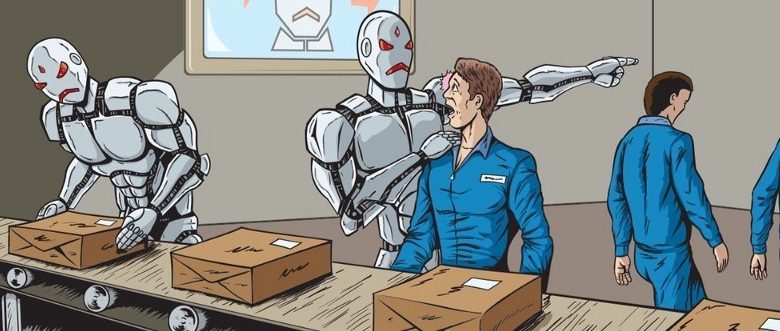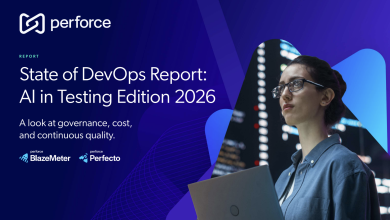
There seems to be a lot of buzz around AI’s impact on the future job market. The most frequent perspective I see on the future job market influenced by AI is the route often taken by media that states that AI will take all our jobs and will leave us all cold and hungry.
For me, reality is far more nuanced. We know media often use scaremongering tactics because it makes the headlines. Media’s distortion of Carl Frey and Michael Osborne’s Future of Employment is a great example where the claim that some functions within 47% of jobs will be automated was distorted to “47% of jobs will disappear”.
According to the World Economic Forum AI will create more jobs than it removes, but don’t get too excited, that’s not the entire story, and it isn’t what I feel is the real issue the future job market faces.
So what is the issue at the centre of the future job market?
The challenge is the displacement of jobs.
Think of the job market as a sand-timer, wide at the top and bottom and thin in the middle. AI will displace jobs by taking the lower-skilled jobs away (the bottom of the sand-timer) and replacing them with higher-skilled, AI-based jobs (the top of the sand-timer).
The challenge with this is upwards mobility.
The new roles require completely different skill sets, experiences, and qualifications that will often be unattainable for the employees whose jobs have been displaced. Here-in-lies the challenge. It’s the responsibility that corporations, industries, and societies need to face up to and take responsibility for.
How do we take responsibility for the future of the job market?
We need to plan well into the future so that employees can begin to re-train not after their jobs have become obsolete but well in advance.
Corporations need to look at where jobs are set to be displaced and start re-training programs.
We need to look at societies that are dependent on specific industries at higher risk of job-loss and look to create new avenues for work.
Gartner’s research director, Manjunath Bhat suggests industries such as manufacturing and transportation may be hit the hardest while the public sector, healthcare, and education are expected to gain the most jobs.
We also need to look at the education system.
Teaching children relevant skills for the future job market such as coding is a start but such courses still remain on the peripherals of our education systems (there are still some great courses free of charge).
But more important than making these skills mainstream I believe is having our education systems teaching a culture of expected change and career resurrection. I believe that the next generations need a mindset that accepts and plans for changes throughout their career, that expects certain industries and professions to disappear in a matter of years and that they see it as a necessity to re-train and re-skill throughout their career.
It’s a start
I must confess, I’ve struggled to find some truly strong examples of organisations and governments taking the initiative now.
I recently heard about a large American bank that set up an initiative where employees who felt their jobs could be improved by AI and automation could come forward and explain how AI could make a positive impact on their function.
In return, they would receive re-training in another area of the business. This also came with a guarantee of employment for at least two years in the new position.
Is this true? It’s unsubstantiated.
Organisations still seem reluctant to share such stories through fear that media may again distort the message to focus on the broader story of robots taking human jobs and causing a “hellish dystopia”.
How do we progress?
We all need to understand AI a little better. We need to get a handle on the scaremongering and negative rhetoric that is distorting perception. The far more nuanced views need to take a leap from educational and broadsheet channels to influence broader areas of society.
We need to accept that AI and automation will influence the job market and we need to prepare pro-actively rather than re-actively, whether it’s at Governmental levels or whether it’s preparing your own child with the right tools and mind-set to succeed.
We should also look to the past. We will survive and adapt to the AI revolution the same way we survived and adapted to the other industrial revolutions. Let’s not forget the benefits that have come with steam power, mass production, digitisation and the internet.
The opportunities for a better future are far more significant with AI than without it. On the whole, AI will create a job market that ekes out repetitive and monotonous tasks and leaves a higher number of jobs full of creativity.
The future can be bright but we need to work hard to make sure AI elevates everyone, not just the privileged at the top of the sand timer whilst leaving behind those at the bottom.
What do you think about the future of the job market?
You can let me know what impact you think AI will have on the job market and businesses in the future by leaving a comment or reaching out to me on LinkedIn.





